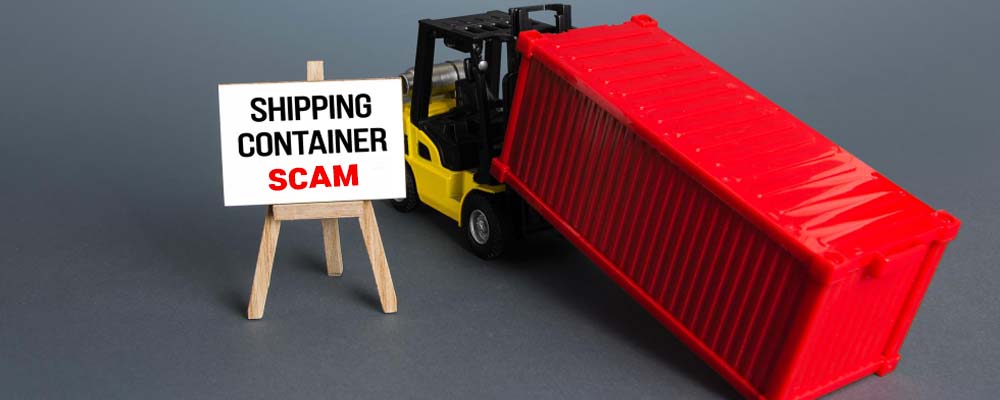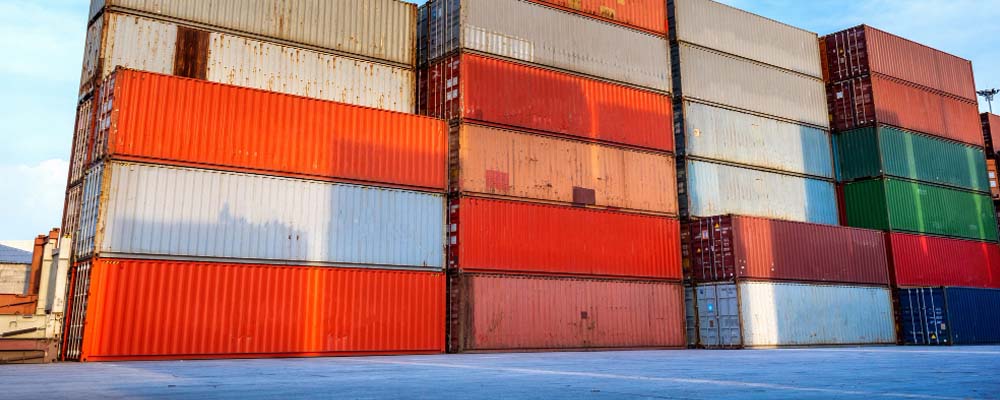
In the fast-paced world of logistics, freight forwarding, and e-commerce, the need for reliable shipping containers is paramount. However, the rise of shipping container scams is a significant concern that can disrupt operations and cause severe financial losses. This blog post aims to shed light on these scams, helping you identify and avoid them, while ensuring your business transactions are secure.
What Are Shipping Container Scams?
Shipping container scams are fraudulent schemes where scammers deceive buyers into paying for containers that do not exist or are substandard. These scams can appear in various forms, targeting different types of businesses, from freight forwarders to e-commerce companies.
The primary goal of these scammers is to exploit the growing demand for shipping containers by offering deals that seem too good to be true. Unfortunately, these deceptive practices can result in significant financial losses, compromised operations, and damaged reputations for the affected businesses.
Understanding these scams’ nature and knowing what to look out for is the first step in protecting yourself and your business from falling victim to such deceitful practices.
Types of Shipping Container Scams
Fake Listings
One of the most common types of shipping container scams involves fake listings. Scammers create websites or online listings featuring attractive deals on shipping containers. They often use stolen images and false information to make their listings appear legitimate.
These fake listings lure unsuspecting buyers with low prices and quick delivery promises. Once the payment is made, the scammer disappears, leaving the buyer without the promised container and out of pocket.
Phishing Scams
Phishing scams are another prevalent form of shipping container fraud. In this scenario, scammers send emails that appear to be from reputable companies or industry contacts. These emails often contain links to fake websites or attachments that, when clicked, steal personal and financial information.
Phishing scams can be highly sophisticated, making it difficult to distinguish them from legitimate communication. They aim to gain access to sensitive information that can be used for financial theft or further fraudulent activities.
Counterfeit Containers
Counterfeit containers are a more sophisticated type of scam. In this case, scammers sell containers that do not meet industry standards or are falsely labeled as new or certified. These containers may have structural issues, be previously condemned, or fail to comply with regulatory requirements.
Using counterfeit containers can lead to severe operational problems, including safety hazards and compliance issues, which can ultimately affect your business’s bottom line and reputation.
 How to Spot Shipping Container Scams
How to Spot Shipping Container Scams
Unrealistic Prices
One of the most telling signs of a shipping container scam is the offer of unrealistically low prices. While everyone loves a good deal, prices that seem too good to be true often signal a scam. Legitimate sellers generally offer prices within a reasonable range, reflecting the market conditions and container quality.
Lack of Verifiable Information
Legitimate sellers provide detailed information about their products and services. If a listing or seller is vague about the container’s condition, origin, or specifications, it should raise red flags. Additionally, sellers who are reluctant to provide references or verifiable contact information are likely not trustworthy.
Poor Quality Websites or Communication
Pay attention to the quality of the website and the communication you receive. Scammers often use poorly designed websites, riddled with grammatical errors and lacking essential information. Similarly, unprofessional communication, such as rushed responses or overly aggressive sales tactics, can indicate a scam.
How to Avoid Shipping Container Scams
Research Sellers Thoroughly
Conduct in-depth research on the seller before proceeding with any purchase. Look for reviews, testimonials, and any available information about their business history. Reputable sellers will have a track record that can be verified through industry contacts or online platforms.
Verify Credentials
Ensure the seller has the necessary credentials and certifications. This includes checking for industry memberships, compliance with regulatory standards, and any other relevant certifications. Verified sellers will readily provide this information to establish their credibility.
Use Secure Payment Methods
When purchasing shipping containers, always use secure payment methods. Avoid wire transfers or cash payments, as these are difficult to trace. Credit card payments and escrow services offer additional layers of protection, ensuring that your funds are safeguarded until you receive the promised goods.
 Shipping Container Scams: Common FAQs
Shipping Container Scams: Common FAQs
What Is a Shipping Container Scam?
A shipping container scam involves fraudulent practices where scammers deceive buyers into paying for non-existent or substandard containers. These scams can take various forms, such as fake listings, phishing attacks, and counterfeit containers, all aiming to exploit the demand for shipping containers.
How Do Shipping Container Scams Happen?
Shipping container scams occur when unscrupulous individuals or entities take advantage of the high demand for containers by creating deceptive offers. They may use fake websites, stolen images, and false promises to lure buyers into making payments. Once the payment is received, the scammer disappears, leaving the buyer without the promised container.
How Do You Avoid Shipping Container Scams?
To avoid shipping container scams, take the following precautions:
- Research sellers extensively before finalizing any purchase.
- Verify the seller’s credentials and look for industry certifications.
- Use secure payment methods to safeguard your funds.
- Be wary of unrealistic prices and vague information.
- Inspect the container and verify its condition before finalizing the purchase.
 Conclusion
Conclusion
Shipping container scams are a growing concern in the logistics and e-commerce industries. By understanding the various types of scams and knowing what to look for, you can protect your business from falling victim to these fraudulent practices.
Always conduct thorough research, verify credentials, and use secure payment methods to ensure that you are dealing with verified sellers. By taking these precautions, you can confidently purchase shipping containers and focus on growing your business without the fear of being scammed.
Stay informed, stay vigilant, and keep your transactions secure. For more insights and tips on navigating the logistics industry, connect with our Connecta partners.




 How to Spot Shipping Container Scams
How to Spot Shipping Container Scams Shipping Container Scams: Common FAQs
Shipping Container Scams: Common FAQs Conclusion
Conclusion



